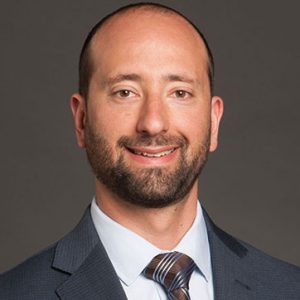Former Detroit councilmember Spivey sentenced to 2 years in bribery scheme
Between 2018 and 2020, federal investigators recorded eight instances where the 48-year-old former councilman and one of his staffers took cash bribes from an undercover federal agent or a businessman working with the FBI.

Former Detroit City Councilmember Andre Spivey was sentenced to two years in federal prison on Wednesday after pleading guilty to receiving nearly $36,000 in bribes. The case is the first conviction in a broader federal corruption probe into Detroit city hall and its police department. Five public officials have been charged as part of “Operation Northern Hook” for matters related to towing contracts and other city business.
Appearing before U.S. District Judge Victoria Roberts, Spivey expressed remorse over his actions. Between 2018 and 2020, federal investigators recorded eight instances where the 48-year-old former councilman and one of his staffers took cash bribes from an undercover federal agent or a businessman working with the FBI. He resigned in September 2021 following his guilty plea.
Those actions are a complete betrayal of the public trust that the defendant’s constituents placed in him when they voted to put him in office.” —U.S. District Judge Victoria Roberts
“I broke the law, and I was wrong,” Spivey said. “I stand before this court today with a contrite heart asking for forgiveness and asking for a second chance.”
Spivey’s attorneys sought probation, saying that a prison sentence would harm his future as a pastor and disrupt a potential law career, despite having no previous criminal record up until this point. They argued that the bribes never affected Spivey’s official conduct.
“He took money with intention, and that’s true,” said Spivey’s attorney Elliott Hall. “But they never ripened into reality.”
Federal prosecutors maintain that Spivey’s votes were affected by misconduct, citing a vote he made to debar a businessman’s competitors because of bribery payments. They claim Spivey “obstructed and lied” to FBI agents, leaking sensitive information to other targets of the federal investigation. Those actions prompted U.S. attorneys to seek a 40-month sentence.
“Detroiters have a sick, disgusted feeling that instead of a vibrant and growing city on the rise, corruption is somehow endemic in the city,” said Assistant U.S. Attorney David Gardey. “The citizens in Detroit and people of the Eastern District need to see and know that bribery and corruption by an elected public official, even where that official has many other fine qualities and good deeds … will result in incarceration. The damage to the public’s belief in democracy and government officials with integrity is too important.”
The courts received hundreds of letters from Detroit’s ministries and other supporters requesting leniency for Spivey’s sentencing. Some included Spivey’s colleagues in Detroit city hall and on the council.
“There is nothing that can erase the result of his poor decisions. However, I can see no benefit of remanding him to jail or prison either,” wrote former Detroit City Council President Brenda Jones. “Please give my friend, Andre, a chance to ‘work off’ his debt by serving our community – one that needs to see a man work to redeem himself and regain his dignity among us.”
In the end, the federal judge presiding over the case sentenced Spivey to 24 months, saying he displayed a “pattern of corruption.” He’s expected to begin his sentence this July.
“Those actions are a complete betrayal of the public trust that the defendant’s constituents placed in him when they voted to put him in office,” said U.S. District Judge Victoria Roberts before handing down the sentence.

Roberts addressed potential disparities in Spivey’s sentencing compared to former councilmember Gabe Leland, who is serving probation after pleading guilty to state charges of misconduct in office. Leland resigned after he admitted to accepting $7,500 in cash campaign contributions by Robert Carmack, who was the government’s primary witness in a related federal corruption case.
Federal prosecutors in the Leland case were concerned that “a trial would be turned into a circus concerning Carmack’s credibility” after the businessman took on a public feud with the Duggan administration and later when he was charged with multiple felonies.
“It seems to be in large part that the primary witness against Mr. Leland had been hampered and damaged because of his own illegal acts, and the government could not prove a bribery case against Gabe Leland,” Roberts said. “The government did prove a bribery case against Mr. Spivey.”
Roberts said Spivey’s sentencing was in line with recent public corruption judgments and cited sentences carried out against other officials in Metro Detroit for similar offenses. Former Detroit city councilmembers Monica Conyers and Alonzo Bates each received more than 30 months after they pleaded guilty to corruption charges. Former Chesterfield Township supervisor Michael Lovelock was sentenced to two years after pleading guilty to accepting $30,000 in bribes in 2018. Former Troy city manager Brian Kischnick was sentenced to 30 months for soliciting bribes.
Trusted, accurate, up-to-date.
WDET strives to make our journalism accessible to everyone. As a public media institution, we maintain our journalistic integrity through independent support from readers like you. If you value WDET as your source of news, music and conversation, please make a gift today.
